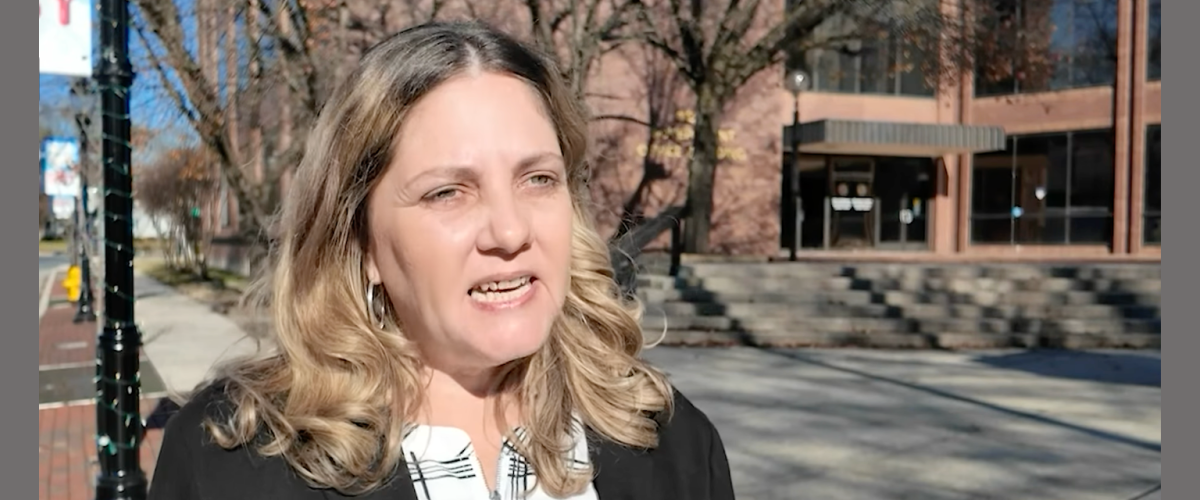Landmark Settlement Announced in Historic Federalsburg Voting Rights Case

Adding reconciliation to history-making election reform, a landmark settlement was announced this month in a federal lawsuit that challenged 200 years of discrimination against Black voters in the Town of Federalsburg.
With a sweeping array of restorative measures, the town seeks to make amends to Black residents for wrongs of the past. The remarkable agreement — the first of its kind in any Maryland voting rights case — was reached through mediation overseen by U.S. Magistrate Judge Erin Aslan. It includes an official apology for historical racism, a street renaming, and community markers commemorating and celebrating the history and contributions of Black residents.
The agreement builds on historic election reform already achieved, with the first election of two Black residents to the town council in September under the new, court-approved election system. The plaintiffs in the case are Black voters from Federalsburg — Roberta Butler, Sherone Lewis, Darlene Pitt Hammond, Elaine Hubbard, Nikendra Bordley, Ryan Haynes, and Lywanda Johnson — along with the Caroline County branch of the NAACP, led by Dr. Willie Woods and Wanda Molock, and the Caucus of African American Leaders, led by Carl Snowden and the Rev. James Jones.
The unprecedented settlement promises a series of actions by the town to rectify past wrongs, promote reconciliation, and bring healing to the community:
- Federalsburg will deliver an official, signed apology, which will be framed and permanently displayed at the town hall.
- The town will commission a commemorative plaque to be affixed to the town hall, “From Protest to Progress: Events that Changed the Face of Federalsburg,” celebrating Black voters’ voting rights victory.
- The town will install a photo display at the town hall, in collaboration with the historical society and the plaintiffs, featuring Black community contributions to the town.
- The town will restore the name Brooklyn Avenue to the portion of the avenue in the Black district renamed Gerardi Boulevard.
- The town will erect a historical marker in the Black community of Brooklyn celebrating the contributions of the neighborhood's residents and their ancestors.
- The town will issue a proclamation naming September 26 as Voting Rights Day in recognition of Black voters' historic win on that day in 2023, the town's bicentennial year.
- The town will establish a unity committee of elected officials and residents from each district to focus on community engagement in elections and matters related to the promotion, engagement, and enhancement of the town’s diverse community.
- The town will establish an annual multicultural celebration.
Read the Town of Federalsburg’s official apology for historical racism:
By this writing, the Town of Federalsburg formally acknowledges responsibility and expresses its deep regret for actions and inactions contributing to racial discrimination and exclusion of Black residents, including its use of an election system that prevented any Black person from holding a position on the Town Council over 200 years. As officials of the town, we accept moral accountability for the harms these actions inflicted upon Black residents, their families, and ancestors before them.
Black residents have lived in Federalsburg since the town’s founding in 1823, and today make up a much-valued share of our diverse community. In times past, however, the town excluded Black residents from full participation in the town’s political life, working a grave injustice for which we are deeply sorry. As officials and residents of the Town of Federalsburg, we have collective responsibility to build a community based firmly on the principle of equality of opportunity, regardless of one's race or ethnic origin.
Through this expression of regret to those who endured race-based hardship and injustice, we seek to turn the page on this shameful history, and to begin a process of reconciliation among all of the town’s residents. Our deep sorrow for past wrongs inspires our unwavering commitment to build a better future for all Federalsburg residents. Going forward, we pledge to do all within our power to ensure that such injustices never happen here again, and to embrace all residents of our town in an inclusive and vibrant community.
Black residents account for 47% of Federalsburg’s population, yet until this past fall, Federalsburg’s government was all-White throughout its history. That is why, in the town’s bicentennial year, the plaintiffs challenged Federalsburg’s election practices, including its longstanding use of at-large and staggered elections, as violations of the 1965 federal Voting Rights Act.
Deborah Jeon, legal director for the ACLU of Maryland, said: “This extraordinary settlement now brings the parties together in a truly remarkable way — one that I have not seen before in over 30 years doing voting rights work across Maryland and the Eastern Shore. Through the town’s public acknowledgment of its history of past racism, genuine expressions of regret, and by undertaking amends to bring healing to a community that has endured two centuries of racial oppression, officials and residents seize this opportunity to move beyond the wrongs of the past, and toward a new day of equity in Federalsburg.”
The American Civil Liberties Union was founded in 1920 and is our nation's guardian of liberty. The ACLU works in the courts, legislatures, and communities to defend and preserve the individual rights and liberties guaranteed to all people in this country by the Constitution and laws of the United States.
Common Sense for the Eastern Shore







